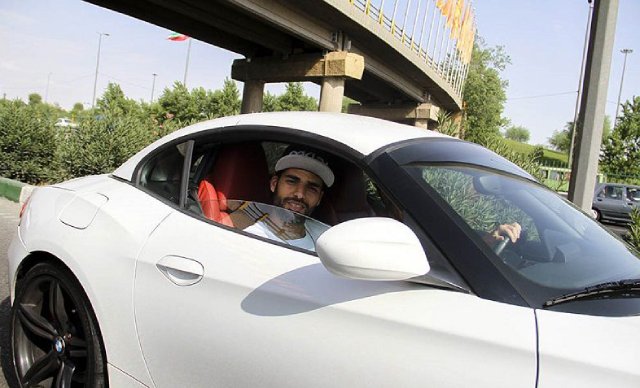The Persian version of this article has printed in “Hammihan” Daily, Dated: Thursday, July 21, 2022.
Special Reward, Exclusive Privilege, or “Rent-Seeking”?
Let us Kill “Me” together
Vahid Namazi, Journalist
The decision to grant national football team players the right to import luxury cars as a reward for qualifying for the World Cup, whether true or not, can be examined from two perspectives.
First Perspective:
We don’t have a Michael Phelps to bring us seven or eight Olympic gold medals every four years. Nor are we Germany, Brazil, or France, capable of lighting up the World Cup with the golden brilliance of our stars’ feet, shaking the world every few tournaments. Qualifying for the World Cup—and making proper use of that opportunity, if we know how—is a rare treasure that every policymaker eagerly awaits. Perhaps the “overall importance” of participating in the World Cup and leveraging a strong presence in the world’s most significant sporting event has been superficially acknowledged by politicians, as evidenced by their occasional, greenhouse-like attention to football. However, a deep understanding of the unique opportunity that comes with qualifying for and excelling in the World Cup requires a fundamental shift in mindset and a non-superficial focus on football. Granting special privileges to stars, while raising the expectations of the football community and fueling rivalries, risks turning us from perennial contenders (and perhaps hopeful qualifiers) in World Cups into mere tourists.
Second Perspective:
Paying special attention to sports, and particularly to football, is important and vital, and it should not be overlooked. But are the special opportunities promised as rewards also available to other societal and economic actors? Does the government extend such “privileges” to small and large businesses that, in the country’s challenging conditions, boost production through financial injections or foreign investment, keeping the lights of industry and commerce on? Are social and cultural activists, who work to preserve societal cohesion and unity—the most critical need of our country today—similarly supported by the government and its bureaucratic apparatus? The competitive edge of football asserts itself every four years, demanding attention, and rightly so. But once the dust of the World Cup settles and its fervor fades, does society at large—meaning all Iranians—along with the “culture” that should be the lifeblood of society and the “economy” that sustains its vitality, also benefit from such “special privileges”?
When Pat Riley, the head coach of the Los Angeles Lakers, left the legendary championship team in 1991 to join the New York Knicks, he found a team at war with itself. The cohesion of the Knicks was shattered, and the players had fallen into divisive cliques. In his first meeting with the team, Riley arranged the chairs in the room into small, separate groups, reflecting the players’ “friendship factions.” Each player was directed to a specific chair, and then Riley asked them to observe the room’s layout. He explained that a team divided could not win. He left them alone for fifteen minutes to reflect on this issue. When he returned, the players had rearranged the chairs into a semicircle, with one chair reserved for the coach. Riley later said, “In just one session, we shifted the players from a culture of ‘me’ to a culture of ‘we,’ beginning the process of building team unity and paving the way for victory.”
And this is precisely the mindset we need today in our beautiful, powerful, and beloved Iran: a culture of “we” that grows strong and replaces the mindset of “me” and “rent-seeking.”

